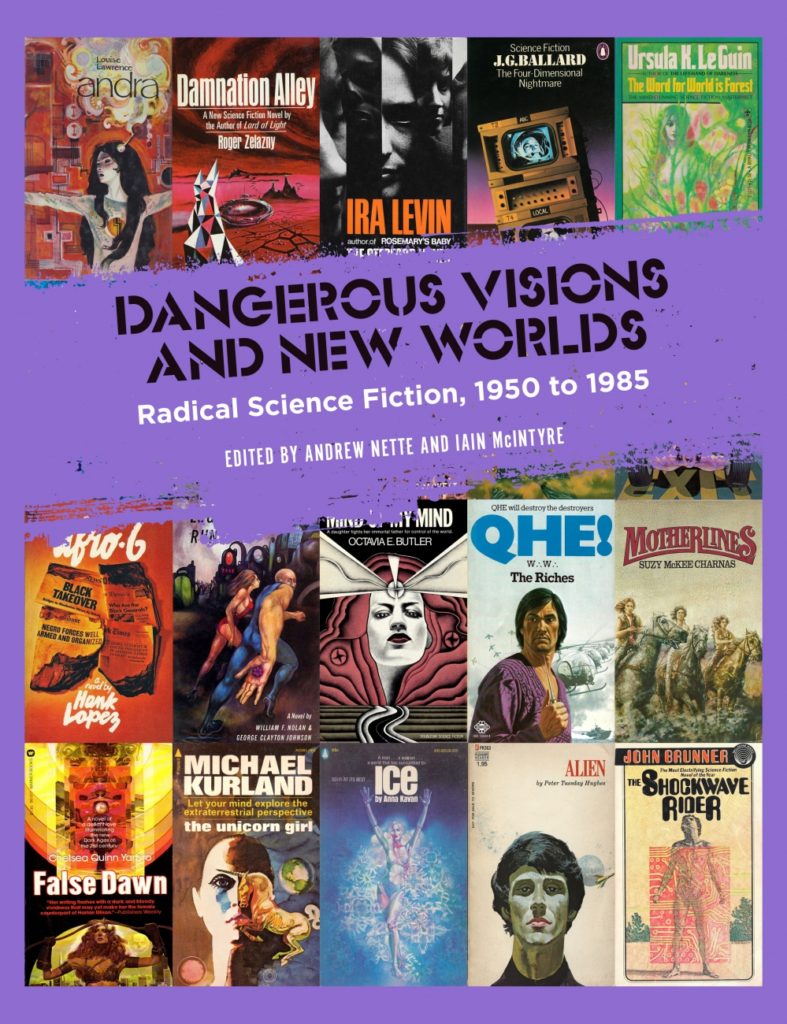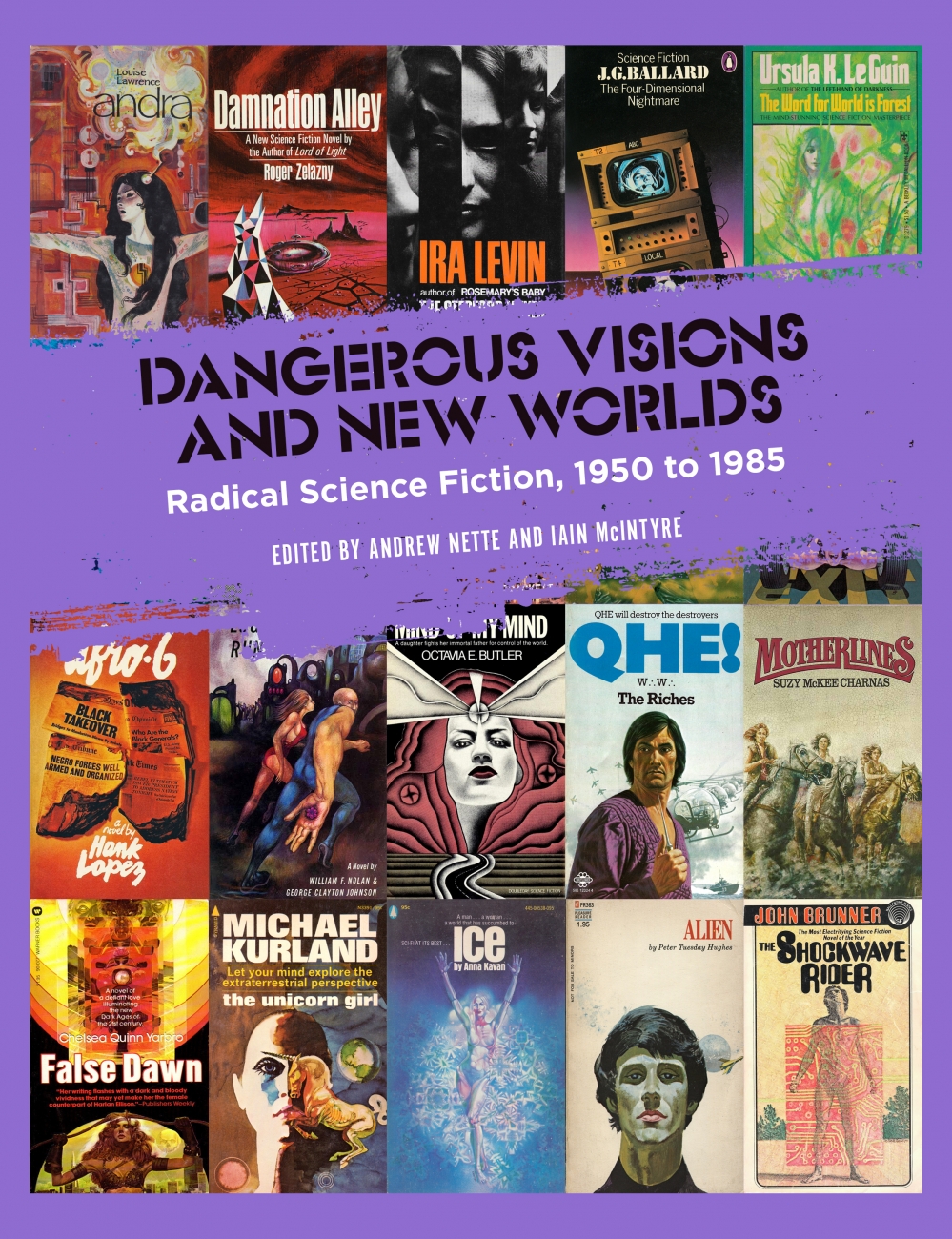Book Review: Dangerous Visions and New Worlds edited by Andrew Nette and Iain McIntyre
Subtitled “Radical Science Fiction, 1950-1985” this book is a collection of essays about how science fiction (or perhaps “speculative fiction” is a better phrase) changed and adapted to reflect the changing issues and social concerns of the Cold War period, and in particular, the “New Wave” of writers and books of the time. It is largely confined to American and British SF of the time, with the exception of an essay on the Soviet Union’s Strugatsky brothers.

The book is named after two of the iconic publications of the time: Dangerous Visions. an anthology of taboo-breaking stories edited by Harlan Ellison, and New Worlds, a British science fiction magazine edited by Michael Moorcock, which featured the first publication of many New Wave authors and stories. The latter has its own essay, but the first does not, though it’s often mentioned due to many authors being represented in it.
After the general introduction, the essays start with how the Vietnam War and reactions to it caused and exemplified the differences between the older style and New Wave science fiction and shifted the way war was depicted in the genre. The final essay is about “The Women’s Press”, a short-lived publisher that specialized in books by women, including numerous works of science fiction. In between, subjects vary from two novels about black revolution, through drugs and their effect on/depiction in fiction of the time, to dystopias.
There are essays about important authors like Octavia Butler, James Tiptree, Jr. and John Wyndham. Books very familiar to me, like Bug Jack Barron by Norman Spinrad, and ones I’ve never heard of, like the Phenix line of gay science fiction porn.
Almost all the illustrations are the covers of books related to the various essays. Many are rare editions, so a lot of fun to look at. The essay about The Green Death, a Doctor Who novelization, seems to be mostly an excuse to print a bunch of Doctor Who covers, but if you thought being political was only a “New Who” thing, you’re sorely mistaken.
One of my favorites in this volume is a compare and contrast between The Moon Is a Harsh Mistress by Robert A. Heinlein and The Dispossessed by Ursula K. LeGuin. There’s a lot of surface similarity, but very different philosophies.
There are acknowledgements, author bios, and an index.
This is a fine book for science fiction fans, especially those interested in the New Wave movement. It would do especially well as a gift for a relative or friend you know is into this sort of thing. And in the spirit of the thing, consider purchasing this either directly from PM Press or a local independent bookstore.

